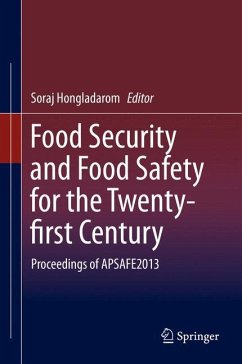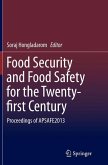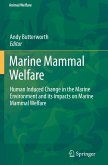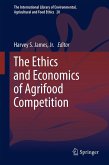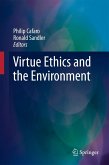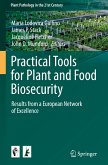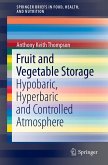Food Security and Food Safety for the Twenty-first Century
Proceedings of APSAFE2013
Herausgegeben:Hongladarom, Soraj
Food Security and Food Safety for the Twenty-first Century
Proceedings of APSAFE2013
Herausgegeben:Hongladarom, Soraj
- Gebundenes Buch
- Merkliste
- Auf die Merkliste
- Bewerten Bewerten
- Teilen
- Produkt teilen
- Produkterinnerung
- Produkterinnerung
This book is a collection of selected papers that were presented at the First International Conference of the Asia-Pacific Society for Agricultural and Food Ethics (APSAFE 2013), which was held at Chulalongkorn University from November 28 - 30, 2013. The papers are interdisciplinary, containing insights into food security and food ethics from a variety of perspectives, including, but not limited to, philosophy, sociology, law, sociology, economics, as well as the natural sciences. The theme of the conference was to consider the interplay and balance between food security and food ethics as the…mehr
Andere Kunden interessierten sich auch für
![Food Security and Food Safety for the Twenty-first Century Food Security and Food Safety for the Twenty-first Century]() Food Security and Food Safety for the Twenty-first Century75,99 €
Food Security and Food Safety for the Twenty-first Century75,99 €![Marine Mammal Welfare Marine Mammal Welfare]() Marine Mammal Welfare187,99 €
Marine Mammal Welfare187,99 €![The Ethics and Economics of Agrifood Competition The Ethics and Economics of Agrifood Competition]() The Ethics and Economics of Agrifood Competition97,99 €
The Ethics and Economics of Agrifood Competition97,99 €![Solar Energy in the Winemaking Industry Solar Energy in the Winemaking Industry]() Mervyn SmythSolar Energy in the Winemaking Industry112,99 €
Mervyn SmythSolar Energy in the Winemaking Industry112,99 €![Virtue Ethics and the Environment Virtue Ethics and the Environment]() Virtue Ethics and the Environment75,99 €
Virtue Ethics and the Environment75,99 €![Practical Tools for Plant and Food Biosecurity Practical Tools for Plant and Food Biosecurity]() Practical Tools for Plant and Food Biosecurity119,99 €
Practical Tools for Plant and Food Biosecurity119,99 €![Fruit and Vegetable Storage Fruit and Vegetable Storage]() Anthony Keith ThompsonFruit and Vegetable Storage38,99 €
Anthony Keith ThompsonFruit and Vegetable Storage38,99 €-
-
-
This book is a collection of selected papers that were presented at the First International Conference of the Asia-Pacific Society for Agricultural and Food Ethics (APSAFE 2013), which was held at Chulalongkorn University from November 28 - 30, 2013. The papers are interdisciplinary, containing insights into food security and food ethics from a variety of perspectives, including, but not limited to, philosophy, sociology, law, sociology, economics, as well as the natural sciences. The theme of the conference was to consider the interplay and balance between food security and food ethics as the world approaches the middle part of the twenty-first century.
Produktdetails
- Produktdetails
- Verlag: Springer / Springer Nature Singapore / Springer, Berlin
- Artikelnr. des Verlages: 978-981-287-416-0
- 2015
- Seitenzahl: 348
- Erscheinungstermin: 10. April 2015
- Englisch
- Abmessung: 241mm x 160mm x 25mm
- Gewicht: 631g
- ISBN-13: 9789812874160
- ISBN-10: 981287416X
- Artikelnr.: 42052586
- Herstellerkennzeichnung Die Herstellerinformationen sind derzeit nicht verfügbar.
- Verlag: Springer / Springer Nature Singapore / Springer, Berlin
- Artikelnr. des Verlages: 978-981-287-416-0
- 2015
- Seitenzahl: 348
- Erscheinungstermin: 10. April 2015
- Englisch
- Abmessung: 241mm x 160mm x 25mm
- Gewicht: 631g
- ISBN-13: 9789812874160
- ISBN-10: 981287416X
- Artikelnr.: 42052586
- Herstellerkennzeichnung Die Herstellerinformationen sind derzeit nicht verfügbar.
Soraj Hongladarom is an associate professor of philosophy at Chulalongkorn University in Bangkok, Thailand. He has published books and articles on such diverse issues as bioethics, computer ethics and the roles that science and technology play in the culture of developing countries. His concern is mainly on how science and technology can be integrated into the life-world of the people in the so-called Third World countries and what kind of ethical considerations can be obtained from such relation. A large part of this question concerns how information technology is integrated in the lifeworld of the Thai people and especially how such integration is expressed in the use of information technology in education. He has organized the second and third Asia-Pacific Computing and Philosophy conferences at Chulalongkorn University in 2005 and 2007. His works have appeared in The Information Society, AI & Society, Philosophy in the Contemporary World and Social Epistemology, among others.
Chapter 1: Can Food Science Reduce World Hunger?.- Part I: Production and Consumption.- Chapter 2: No Food Security without Food Sovereignty.- Chapter 3: Ethical Values of Food Safety.- Chapter 4: Current Situation on Food Additives in Thailand: Use and Awareness.- Chapter 5: The "Monsantonization" of Agriculture.- Chapter 6: Rural Infrastructure and Gender Inequality in Agribusiness Development (A Case of Batu, East Java Province, Indonesia).- Chapter 7: Use of Indigenous Filipino Food Ingredients in Processed Meat Products.- Chapter 8: The Future of Livestock: Feeding the World Sustainably and Humanely.- Chapter 9: Impact of Processing on Pesticide Residues in Vegetables.- Chapter 10: Sodium Content of Snack Food and Ethical Considerations Pertaining to its Distribution in Schools.- Chapter 11: The Effect of Organic and Inorganic Fertilizer on Production, Sesame Seed Oil Content and Feasibility in Sandy Coastal Land.- Chapter 12: Water Balanced Analysis for the Determination of Available Growing Season at sub-Watershed, Loa Janan, East Kalimantan.- Chapter 13: The Right to Organic/Ecological Agriculture and Small-Holder Family Farming for Food Security as an Ethical Concern.- Chapter 14: Pre-HACCP As a Management Development Tool Toward Achieving Food Safety Standard: Thailand's Experience.- Chapter 15: Ethical Reflections on the Process of Food Production in China.- Part II: Distribution and the Environment.- Chapter 16: Sucked into the Global Vegetable Oil Complex: Structural Changes in Vegetable Oil Supply Chains in China and India, Compared with the Precedents in Japan.- Chapter 17: Presentism as an Embedded Temporal Value of Modernity: An Analysis of the Modern Food System from the Energy Perspective.- Chapter 18: The Reality of Food Deserts in a Japanese Big City and their Resolution using Urban Agriculture.- Chapter 19: Choosing our Food Futures through Participation?: A Critique of 'Scenario Workshops' in Lofoten.- Chapter 20: What Arethe Moral Codes for Seed-Saving?: From the Interviews with the Practitioners in Japan.- Chapter 21: Management, Food Preparation and the Ethical Dimension at the Khao Kaewsadet Education Centre.- Chapter 22: Intellectual Property Rights and Food Security: The Role of External Relations.- Chapter 23: The Holistic Ethics of Sustainability.- Chapter 24: Biosphere and Syntropy - What has Forestry to do with?.- Chapter 25: The Case of Biwako Quasi-National Park: An Analysis of Sustainability and Development.- Chapter 26: Influence of Differences between Western and Eastern Philosophy Thoughts on Ethics of Genetic-Modified Foods and Crops.- Chapter 27: Arthropod Pest Management in Sustainable Agricultural Systems.- Chapter 28: Japanese Consumers' Altruistic Attitude and Food Choice: Two Years after Fukushima Accident.
Chapter 1: Can Food Science Reduce World Hunger?.- Part I: Production and Consumption.- Chapter 2: No Food Security without Food Sovereignty.- Chapter 3: Ethical Values of Food Safety.- Chapter 4: Current Situation on Food Additives in Thailand: Use and Awareness.- Chapter 5: The "Monsantonization" of Agriculture.- Chapter 6: Rural Infrastructure and Gender Inequality in Agribusiness Development (A Case of Batu, East Java Province, Indonesia).- Chapter 7: Use of Indigenous Filipino Food Ingredients in Processed Meat Products.- Chapter 8: The Future of Livestock: Feeding the World Sustainably and Humanely.- Chapter 9: Impact of Processing on Pesticide Residues in Vegetables.- Chapter 10: Sodium Content of Snack Food and Ethical Considerations Pertaining to its Distribution in Schools.- Chapter 11: The Effect of Organic and Inorganic Fertilizer on Production, Sesame Seed Oil Content and Feasibility in Sandy Coastal Land.- Chapter 12: Water Balanced Analysis for the Determination of Available Growing Season at sub-Watershed, Loa Janan, East Kalimantan.- Chapter 13: The Right to Organic/Ecological Agriculture and Small-Holder Family Farming for Food Security as an Ethical Concern.- Chapter 14: Pre-HACCP As a Management Development Tool Toward Achieving Food Safety Standard: Thailand's Experience.- Chapter 15: Ethical Reflections on the Process of Food Production in China.- Part II: Distribution and the Environment.- Chapter 16: Sucked into the Global Vegetable Oil Complex: Structural Changes in Vegetable Oil Supply Chains in China and India, Compared with the Precedents in Japan.- Chapter 17: Presentism as an Embedded Temporal Value of Modernity: An Analysis of the Modern Food System from the Energy Perspective.- Chapter 18: The Reality of Food Deserts in a Japanese Big City and their Resolution using Urban Agriculture.- Chapter 19: Choosing our Food Futures through Participation?: A Critique of 'Scenario Workshops' in Lofoten.- Chapter 20: What Arethe Moral Codes for Seed-Saving?: From the Interviews with the Practitioners in Japan.- Chapter 21: Management, Food Preparation and the Ethical Dimension at the Khao Kaewsadet Education Centre.- Chapter 22: Intellectual Property Rights and Food Security: The Role of External Relations.- Chapter 23: The Holistic Ethics of Sustainability.- Chapter 24: Biosphere and Syntropy - What has Forestry to do with?.- Chapter 25: The Case of Biwako Quasi-National Park: An Analysis of Sustainability and Development.- Chapter 26: Influence of Differences between Western and Eastern Philosophy Thoughts on Ethics of Genetic-Modified Foods and Crops.- Chapter 27: Arthropod Pest Management in Sustainable Agricultural Systems.- Chapter 28: Japanese Consumers' Altruistic Attitude and Food Choice: Two Years after Fukushima Accident.

